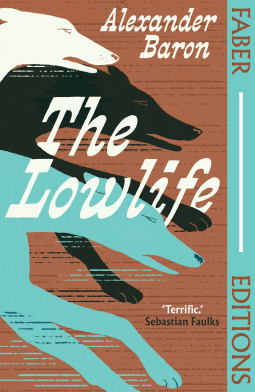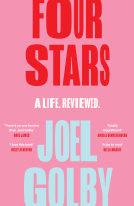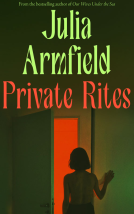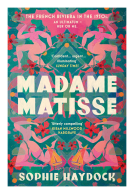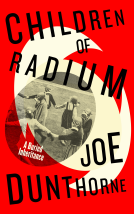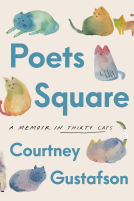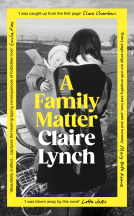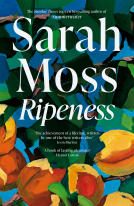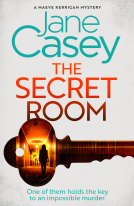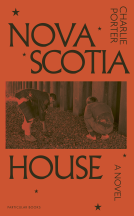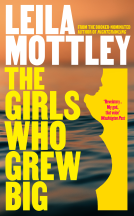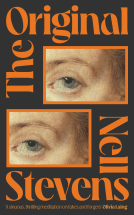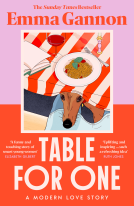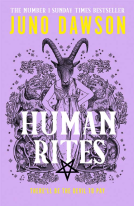The Lowlife
by Alexander Baron; Iain Sinclair (foreword)
You must sign in to see if this title is available for request. Sign In or Register Now
Send NetGalley books directly to your Kindle or Kindle app
1
To read on a Kindle or Kindle app, please add kindle@netgalley.com as an approved email address to receive files in your Amazon account. Click here for step-by-step instructions.
2
Also find your Kindle email address within your Amazon account, and enter it here.
Pub Date 8 May 2025 | Archive Date 29 May 2025
Talking about this book? Use #TheLowlife #NetGalley. More hashtag tips!
Description
Never give up hope before the dogs have crossed the finishing-line.
Harryboy Boas is a lowlife gambler. When he’s not at the track, he lives in a Hackney boarding house, reading Zola, eating salt beef, pressing trousers and repressing wartime memories. But when a new family moves into the apartment downstairs, his life starts to unravel and Harryboy soon finds himself sinking into a murky East End underworld where violence, guilt and gangsters are the inevitable result for those who cannot pay their dues . . .
Originally published in 1963 and a celebrated cult classic, The Lowlife brilliantly evokes post-war East London – dog tracks, sandwich shops, tenements, prostitutes, newly arrived West Indians and Jews leaving for Finchley – all seen through the tragicomic eyes of Harryboy, our picaresque rogue hero suffering from ‘existential burn-out in the shadow of the Holocaust’ (Iain Sinclair) and driven to bet, brag and beg to survive.
‘A wholly authentic and compelling voice.’ William Boyd
'Terrific.' Sebastian Faulks
'The most perfectly proportioned London novel, capturing the grind of scheming, dreaming, struggle – and, of course, the city in all its grime and glory.' Benjamin Myers
'A visceral rendering of a city on the cusp between the Ration Book Fifties and the Swinging Sixties.' Cathi Unsworth
With an foreword by Ian Sinclair
Available Editions
| EDITION | Paperback |
| ISBN | 9780571393473 |
| PRICE | £9.99 (GBP) |
| PAGES | 240 |
Available on NetGalley
Featured Reviews
 Reviewer 854813
Reviewer 854813
Didn't really know what to expect from this but I enjoyed it a lot. Very meaningful and one that will stick with me.
“The gambler is the one who goes on with no peace, no release, till he has annihilated himself…”
Harryboy Boas is that gambler.
Determined to assuage his guilt from a past love affair, Harryboy Boas spends his days as a bachelor in Hackney, London gambling with his prospects, his life, and the lives of others. What he has curated as the perfect emotionally-repressed and self-gratifying life suits him just fine: he spends his days gambling on dogs at the track, reading, and philosophizing, and his sordid nights with women.
Then one day, a couple moves into the shared boarding house, beginning the emotional and financial unravelling that forces him to come to terms with his psychological state and his treatment of others.
Self-annihilation is a prominent theme in this novel. Harryboy Boas is plagued by guilt over a past affair that may or may not have yielded him a Jewish child during the height of the Second World War, which fuels his hatred of himself and others. He is determined not to form bonds, and any relationships he has with his sister and her husband he merely uses to his advantage. Yet you can feel in his internal dialogue a deep sense of loss and longing--for human connection, to be freed from his past, and to be given a future. One where he is able to come to terms with himself and be truly cared for.
What I love so much about this novel is how self-aware Harryboy is, even as he is determined to repress all of his own thoughts, memories, and emotions. He is raw and unflinching in his dialogue, consistently acknowledging his own role as the story's protagonist and antagonist--while still refusing to change in any way that doesn't serve his own selfish desires.
And I love this about him.
There is nothing better than a self-aware, flawed main character who is in a self-imposed cycle of destruction, yet still can't break it. It's human. I saw myself so many times in his internal conflicts, and it made him all the more magnetic.
Baron's "The Lowlife" is one of my favorite reads from NetGalley, capturing the essence of what it means to be human, and to wrestle with the pain, guilt, and desires of our own hearts--even as we actively go against them.
Thank you to the publisher for the e-arc, and to Sinclair's immersive introduction into Baron's world of Hackney, London.
THE LOWLIFE: 4.25 stars.
Alexander Baron’s The Lowlifes is a gripping and unflinching look at London’s underworld, following characters trapped in cycles of crime and desperation. With his sharp, atmospheric prose, Baron paints a bleak yet compelling portrait of those on society’s fringes, exposing the raw realities of survival and moral compromise. The novel’s strength lies in its authenticity—there are no glamorous criminals here, just broken people making difficult choices. Gritty, thought-provoking, and deeply human, The Lowlifes is a powerful read for anyone drawn to stark realism and social critique.
Harryboy Boas is a man of habits. He likes a bet, a smoke, and a bit of solitude—ideally all at once. Living in a cluttered flat in 1960s Hackney, he keeps the world at arm’s length. He’s no great villain, nor a model citizen—just someone trying to live quietly and on his own terms. Mostly.
This is a terrific character piece, equal parts funny and sad, with a sharp eye on the kinds of lives that don’t usually make the papers. Baron writes with economy, compassion, and sage wit: “A childhood is one long rearguard action of naked free will against society.”
Harryboy, in all his contradictions, is given full humanity. He doesn’t want much, just to be left alone to gamble, read, and potter about—“reading on a full belly is the peak of human happiness“ - but life won’t quite let him be. The arrival of a new family in his boarding house, and the presence of a young boy who latches onto him, disrupts his carefully kept detachment.
There’s a lot going on here under the surface: the pull between community and isolation, the tension between Harryboy’s Jewish heritage and his chosen identity, and the slow creep of change in a working-class corner of London. But Baron never labours the point. He just shows people as they are—funny, worn down, irritable, kind in spite of themselves.
It’s not a book that builds to some grand transformation—Harryboy doesn’t suddenly turn saintly—but it leaves a mark. A quiet, well-observed novel that understands how loneliness is padded out with routines, and how, sometimes, that loneliness is interrupted in ways you didn’t ask for but maybe needed.
I’ve loved every Alexander Baron book I’ve read, and this was no exception. A true gem.
 Reviewer 494590
Reviewer 494590
I do love a boarding house novel. Harryboy Boas is living his own life.and trying to keep himself to himself. It's a rather seedy life of gambling, mainly. When he wins, he enjoys eating and reading, and the occasional visit to his favourite prostitute. When he loses, he will work to build up his stake money so he can get back to the track. All this changed when a new family moves into the boarding house he lives in. They have a young boy, clearly lonely, who befriends him and draws him into their family drama.
The characters are very well drawn, if infuriating. Harry is deeply flawed, haunted by something that may have happened during the war; he has never tried too hard to find out. History's mother Evelyn is desperate that the family better themselves and won't let her son play with the riff raff in the streets, and is hard on Vic, the father who isn't doing enough to get them away. All this leads to a bleak, but deeply compelling narrative.
*Many thanks to Netgally and Faber for a copy in exchange for an honest opinion.*
 Sherry C, Reviewer
Sherry C, Reviewer
I worried that "The Lowlife" would be a bit fusty or drab, as that's how I envision the post-WWII, pre-Swinging Sixties England in which it's set. But the novel is anything but. There's a dry humor to the narration of Harryboy, the gambler and ostensible lowlife of the title. But while he makes more than a few insalubrious choices, I don't think of Harryboy as a lowlife at all. He tries, often enough, to do the right thing—which is the cause of his most pressing problems. Yet he acknowledges his shortcomings and never blames others for the situations he finds himself in, which makes him one of the novel's more admirable characters, at least to my eyes.
Leaving aside philosophical musings, "The Lowlife" is a fast, entertaining read, one that has me eager to check out more of Alexander Baron's work. Thank you, NetGalley and Faber and Faber, for providing me with an advanced copy in exchange for an honest review.
